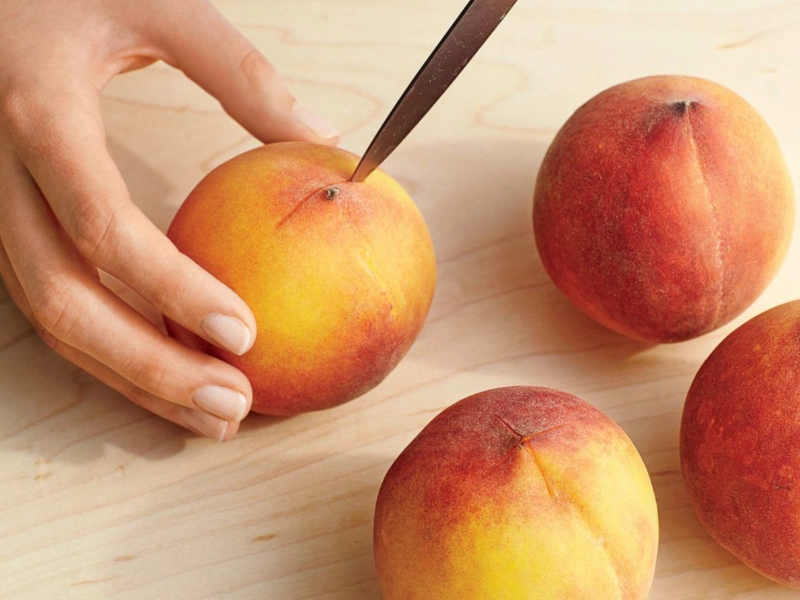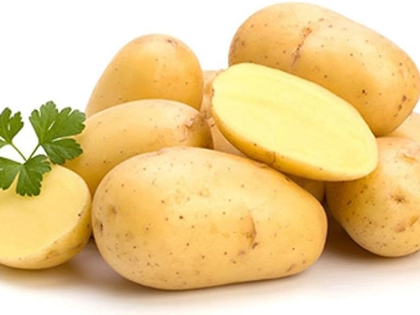Vitamin C, which is crucial for the health of the immune system, is present in peaches in good amounts. They also offer potassium.
According to studies, lutein and zeaxanthin are phytonutrients found in peach seeds and fruit. These substances may lessen the development of cataracts and macular degeneration while defending the eyes against UV deterioration.
Antioxidants

Advertisement
Antioxidants, which are substances your body needs to get rid of free radicals that can harm cells and cause disease, are abundant in peaches. Additionally, antioxidants can aid in lowering the risk of diabetes, cancer, heart disease, and age-related macular degeneration.
Vitamin C, an antioxidant that supports robust, healthy skin, is abundant in peach skins. The vitamin can smooth out wrinkles, increase suppleness, and improve skin texture. According to the New Jersey Agricultural Experiment Station, it can also increase collagen formation, protect your body from sun damage, and help prevent wrinkles.
The amount of fibre in a medium-sized peach is roughly 3 grammes. This nutrient can help with constipation prevention and is crucial for gut health. A cup of sliced peaches really has the same amount of fibre as a cup of whole wheat toast.
C vitamin

Peaches are a good source of fibre, vitamin C, and antioxidants. They provide natural sweetness and are a better option than processed desserts that are high in empty calories.
11.3 milligrammes of vitamin C, or almost 13 percent of the daily recommended allowance, may be found in one medium peach. This is crucial for encouraging good skin, preventing free-radical oxidative damage, boosting the immune system, and lowering the risk of chronic illnesses.
White blood cells can function more effectively thanks to vitamin C. This can lower the risk of infections and possibly stop asthma-related inflammation of the throat and lungs. Additionally, potassium, which is necessary for blood pressure control and heart health, is a moderate source in peaches. According to a study, this nutrient may lower the risk of high blood pressure and stroke.
Fibre

The fibre in peaches helps to reduce inflammation while also maintaining a healthy digestive system. One medium-sized peach has about 10 milligrammes of dietary fibre, making it a healthy source of both soluble and insoluble fibre.
According to integrative and functional nutritionist Nour Zibdeh, the antioxidants in peaches can support a healthy immune system, while vitamin C promotes the development and enhances the functionality of white blood cells, which fight foreign bacteria and viruses. By protecting against light-related harm, such as macular degeneration and cataracts, it can also lower your risk of developing eye conditions.
Choose fresh peaches that feel solid to the touch and are free of bruising for the fruit's highest nutritional content. They can be added to salads, used as a garnish on yoghurt bowls, or used to produce fresh juice and smoothies.
A vitamin

Peach skins have a moderate quantity of vitamin A, which the body converts to beta-carotene, which aids in reducing inflammation and preserving eye health. Consuming foods high in vitamin A may also lower your chance of developing age-related macular degeneration and other eye conditions, according to a study.
Peaches are full of fibre, which can aid in weight loss and avoid constipation, in addition to their nutrient-dense flavour. Additionally, they're a fantastic source of potassium, a mineral that might help decrease blood pressure.
Peaches also have the benefit of being a good source of magnesium, which may help reduce stress. Because of their capacity to lessen tension, Hungary refers to them as the "fruit of calmness".
Calcium

Peaches are a good source of calcium, which helps maintain the health of your bones. The mineral is present at 9 milligrammes per medium-sized peach. Osteoporosis, a disorder that affects the bones and raises the risk of fractures, can be prevented with a calcium-rich diet.
Peaches are a good source of vitamin C, which also helps to give skin a healthy glow and protect it from sun damage. Even the ageing process can be slowed down by it. Peaches include vitamin A, which supports healthy vision. Beta-carotene is transformed by the body into vitamin A, which aids in bettering vision and eye health. Lutein and zeaxanthin, two phytonutrients found in peaches, can help prevent age-related macular degeneration.
Peaches' potassium content lowers blood pressure. It functions by assisting the kidneys in the removal of sodium and lowering the pressure of blood in the arteries. It can be challenging to consume enough of this nutrient, but foods like peaches can help.














